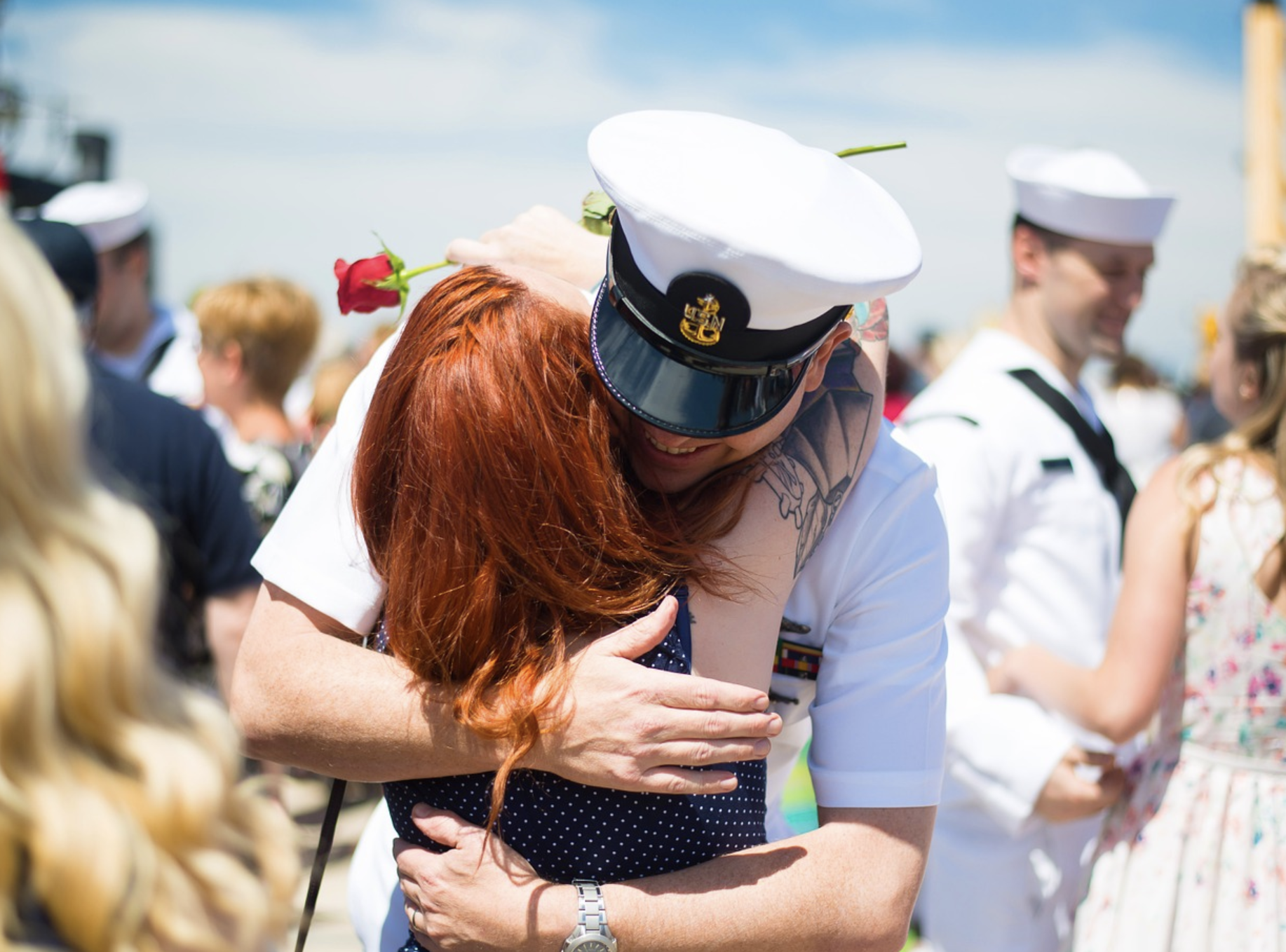Veterans give up so much of their time and energy for us to live our free lives that the constitution promises. But with something so valuable as individual freedom, there are high stakes and severe challenges veterans face when re-entering our society.
We can’t expect veterans to return to their lives completely unchanged. They have seen the indescribable and from that, their lives will forever be changed. That’s why it’s so important for us to become a sense of community for veterans as they transition back to the life they left to go defend our country.
We can’t begin to relate to the mental state our loved ones are in when returning from war. However, that doesn’t mean we can’t be there for them and do anything and everything in our power to make their transition a little less daunting.
Mental health is at the utmost concern for a returning veteran. Their wounds may have healed and injuries recovered, but mental health is something that is much more challenging to bounce back from.
PTSD, or post-traumatic stress disorder, is a very well-known disorder often associated with veterans. Still, it’s estimated that under 20% of soldiers returning from war will develop diagnosable PTSD that requires medical attention.
That means that the large majority of the veteran population will not experience this serious disorder that’s often associated with veterans. However, that doesn’t mean they’re perfectly stable and ready to jump back into the full swing of everyday life as they left it. They will certainly appreciate your support as they navigate the difficult transitions.
People know what PTSD is and there’s tons of resources on the internet on how to cope with it. All of the other little challenges veterans are facing can be much more challenging to handle because they may go unnoticed and untreated.
We should set realistic expectations for our loved ones who served our nation. Even if they are fortunate to not develop PTSD, we can’t expect them to be the same person they were when they left us.
We need to act not as therapists that will solve all their problems, but as rocks for them to turn to when they need a little extra support to get through the day. Whether that’s being open to listening to their feelings or going above and beyond to show that you care and you’re thinking of them, we should be conscious that they may be struggling even when we don’t realize it.
Shutting out veterans because they’re not the same person they were when they left is only going to worsen the problem. This is part of the explanation as to why the population of homeless veterans is increasing across the US. People come back from war and struggle to reintegrate, and if they don’t have the resources to guide them, they won’t be able to cope with the finances and stressors of normal life.
That’s why it’s on us, as a community, to be those guiding resources.
That’s why it’s on us, as a community, to be those guiding resources. From finding ideas on how to support your loved ones, to knowing where to look for specialized counseling, to knowing the signs and symptoms of common medical conditions – there are countless ways you can help out.
Whether you know the individual personally or it’s just a friend of a friend, it’s worth reaching out to them to build a relationship and show your support.


